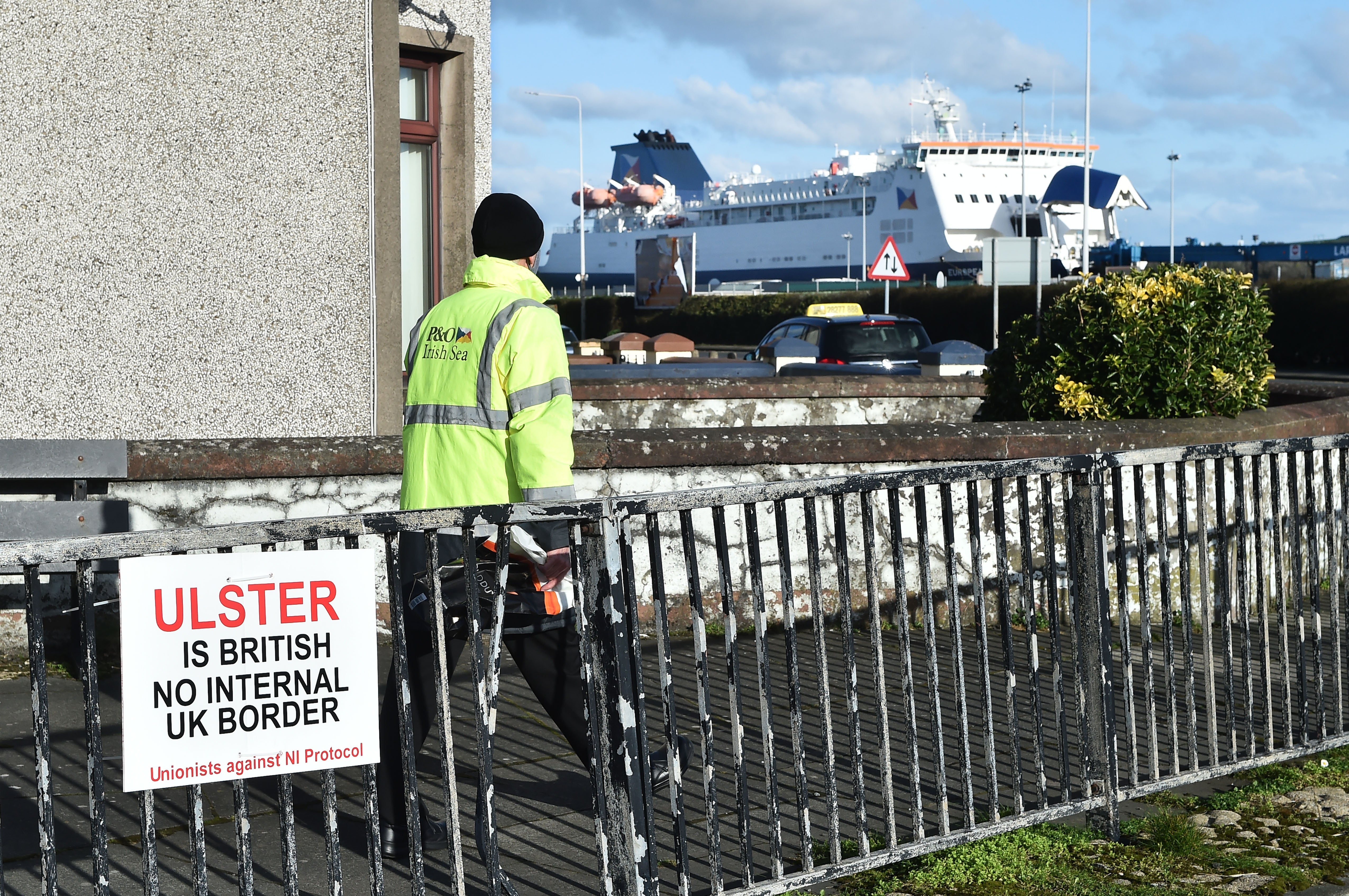Brexit row escalates over European Court involvement in Northern Ireland
‘Substantial’ gaps remain after talks with Brussels, says UK government

The UK’s Brexit bust-up with Brussels over the Irish border came a step closer to boiling over today, as the European Commission told EU member states that the role of the European Court of Justice (ECJ) was “not up for discussion”.
Removing the Luxembourg court from any role in adjudicating disputes over the border is a key demand of London in talks currently taking place on the operation of the Northern Ireland protocol that was negotiated and agreed by Boris Johnson in 2019.
The UK has threatened to suspend the protocol by invoking Article 16 as early as mid-November unless it gets its way, in a move that would almost inevitably trigger retaliatory measures, including tariffs on trade with the EU.
Mr Johnson’s Brexit minister David Frost today accused Brussels of failing to “engage” with the UK’s demands relating to the ECJ as well as with calls for change to the protocol’s provisions relating to subsidy policy and VAT.
And the prime minister himself raised the issue in phone talks on Friday with Polish prime minister Mateusz Morawiecki, who is himself embroiled in a row with Brussels over the ECJ’s role in his own country.
Talks in London between Lord Frost and commission vice-president Maros Sefcovic broke up today without a breakthrough on the future of the protocol, though the pair are due to meet again in Brussels on 5 November. The UK said that differences between the sides remain “substantial”.
The commission has put forward an offer of significant relaxations in the operation of customs checks on goods travelling between Northern Ireland and the British mainland.
The checks have caused considerable disruption and shortages of goods since their introduction at the start of this year as a result of Mr Johnson’s decision to create a customs border in the Irish Sea as part of his Brexit deal.
But Brussels has always insisted it will not renegotiate the protocol, or accept the removal of the ECJ from oversight of the EU’s single market, which continues to operate in Northern Ireland.
Today’s note said that the role of the ECJ had not been raised with Brussels by Northern Irish businesses, who in fact saw continued participation in the single market as one of their “key interests”.
“Being part of the single market means applying EU law,” the paper stated. “And the application of EU law implies a role for the [ECJ], as foreseen by the protocol.”
It added: “The EU was always clear in its intentions – it will not renegotiate the protocol, and the role of the [European] Court of Justice is not up for discussion.”
A UK government spokesperson said Lord Frost’s talks with Mr Sefcovic were “conducted in a constructive spirit”.
But the spokesperson added: “While there is some overlap between our positions on a subset of the issues, the gaps between us remain substantial.
“As we have noted before, the EU’s proposals represent a welcome step forward but do not free up goods movements between Great Britain and Northern Ireland to the extent necessary for a durable solution.
“Nor do they yet engage with the changes needed in other areas, such as subsidy policy, VAT, and governance of the protocol, including the role of the Court of Justice.
“Our position remains that substantial changes to the protocol will be needed if we are to find a sustainable solution that works in the best interests of Northern Ireland and supports the Belfast (Good Friday) Agreement.”
Join our commenting forum
Join thought-provoking conversations, follow other Independent readers and see their replies
Comments
Bookmark popover
Removed from bookmarks